



Inflation Update: Green light for easing
 DOWNLOAD
DOWNLOAD

December Economic Update: One for them, one for us
 DOWNLOAD
DOWNLOAD

Philippines Trade Update: Trade trajectories trend along
 DOWNLOAD
DOWNLOAD


Natural disasters, climate issues to affect PHL banks

CLIMATE RISKS are expected to have long-lasting negative effects on the banking sector, especially in disaster-prone countries like the Philippines, the World Bank said.
“There is increasing global recognition that climate change, natural disasters and environmental issues can lead to risks for the financial sector,” the multilateral lender said in a policy research working paper.
It said severe natural disaster episodes can increase a banking system’s nonperforming loan (NPL) ratio by 0.37 percentage point one year after a disaster episode.
After two and three years involving multiple disasters, the increase will be at 0.56 to 0.6 percentage point, respectively.
“The relationship between severe climate and environmental related disasters and the level of systemwide NPL ratios is observed across multiple World Bank regions, including in East Asia and Pacific,” it added.
The World Bank said the Philippines is one of the most disaster-prone countries in the world as at least 60% of the country’s total land area and close to 74% of its population are exposed to multiple natural hazards, including typhoons, floods, storm surges, tsunamis, and landslides.
Typhoon damage led to a significant increase in NPL in the Philippines between 2011 and 2018, it said.
“We find that a one percentage point increase in the typhoon damage ratio, defined as the amount of damage divided by regional gross domestic product (GDP), could lead to an increase in the NPL ratio as large as 2.3%, an estimate larger in magnitude than these found for the cross-country sample,” it said.
“Following a typhoon, the combined effect of bank lending contraction and an increase in defaulting loans leads to an overall increase of the NPL ratio. This evidence suggests that typhoons have a destabilizing effect on the Philippine banking system,” it added.
The World Bank said disaster episodes can also affect banks’ margins, capital, credit to the private sector, and liquidity.
“We also find tentative evidence that severe climate and environmental related natural disaster episodes may be associated with several other key banking sector variables, such as net interest margin, capital adequacy, credit to the private sector and liquidity-to-deposit ratio,” it added.
Credit risk could also rise as disaster events affect borrowers’ ability to repay and service debt, the World Bank said.
“The loss of collateral or, in general, destruction of physical assets diminishes borrowers’ wealth, affecting banks’ ability to fully recover the value of a loan in case of bankruptcy. On the other hand, government intervention, the availability of insurance, financial support by banks or alternative funding sources can keep borrowers afloat, financing the recovery in the aftermath of a natural disaster,” it added.
“An important first step would be to collect information to track such risks, including filling any data gaps that may hinder a full understanding of such risks. Once information is in place, policy makers could consider a more detailed assessment of these risks, and specifically the various risk channels that may be at work,” it said.
It added that the banking sector should conduct stress tests to assess the impact of climate risks on lenders’ operations. — L.M.J.C. Jocson
This article originally appeared on bworldonline.com





 By BusinessWorld
By BusinessWorld